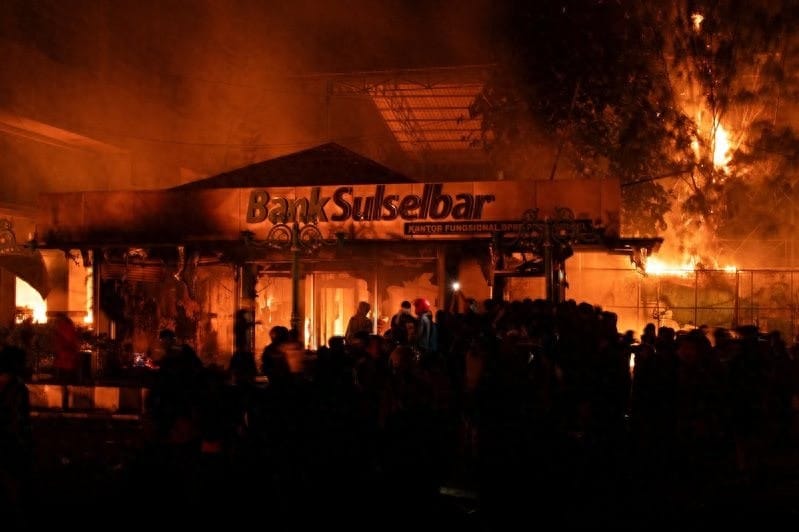Indonesia Protests Escalate: Local Council Building Set on Fire, 3 Dead
Protests in Indonesia have turned deadly with a local council building set ablaze, resulting in three deaths and igniting serious concerns about political stability.

Understanding the Recent Escalation of Protests in Indonesia
The wave of protests sweeping across Indonesia has taken a dramatic and tragic turn. What began as a demonstration against high parliamentary salaries quickly spiraled into violence, with the local council building in Makassar, South Sulawesi set ablaze. This distressing incident left three people dead and several injured, raising urgent questions about the underlying social and political tensions rocking the nation. 😟🔥
This violence is not just an isolated event but marks the first significant challenge for President Prabowo's administration since he took office. The growing unrest underscores the difficulty of balancing the public’s demands with political realities, making it clear that the road ahead is fraught with complex issues that require careful handling.
The Human Cost: Lives Lost and Communities Wounded
The tragedy struck as victims were trapped inside the burning council building. The Disaster Management Agency confirmed the deaths but has yet to clarify the exact causes. What makes it even more heart-wrenching is the fact that some injured individuals were hurt trying to escape the inferno by jumping from the burning structure. This grim scene forces us to confront the human toll behind political discord.
Additionally, the loss of a motorcycle taxi driver in Jakarta after being hit by a police officer armored vehicle added fuel to the protest flames. This incident prompted President Prabowo to personally visit the victim’s family and promise thorough oversight of the investigation. Such events suggest deeper fractures in the community's trust towards law enforcement and governance. 🚔💔
From Jakarta to Regional Cities: Nationwide Unrest
Originally sparked in the capital city of Jakarta, protests quickly spread to other urban centers including Bandung and Yogyakarta. These demonstrations illustrate discontent that isn't limited to one locale but reflects a national dissatisfaction with political and economic grievances. Isolated incidents of robbery and vandalism, especially targeting transportation infrastructure, have compounded fears and disrupted daily life.
The portfolio of unrest paints a troubling picture for Indonesia’s stability. It confronts the government with the urgent need to respond fairly, transparently, and effectively. The stakes are high, as unchecked violence and disorder could worsen the already fragile social fabric. 🏙️⚠️
What Does This Mean for Indonesia's Future?
It’s evident that these protests, the heartbreak, and the destruction of property raise important questions about governance, accountability, and the social contract between citizens and their leaders. How can Indonesia rebuild trust? What changes might be necessary to prevent such tragedy from recurring? These questions loom large as the nation grapples with this crisis.
President Prabowo’s response, and how the political system adapts from here, will likely be critical indicators for the country’s trajectory. The Indonesian people deserve answers and effective solutions — not just promises made in moments of tragedy. The eyes of the world are watching, and Indonesia’s next steps must prioritize peace, justice, and unity above all else. 🌍🤝




